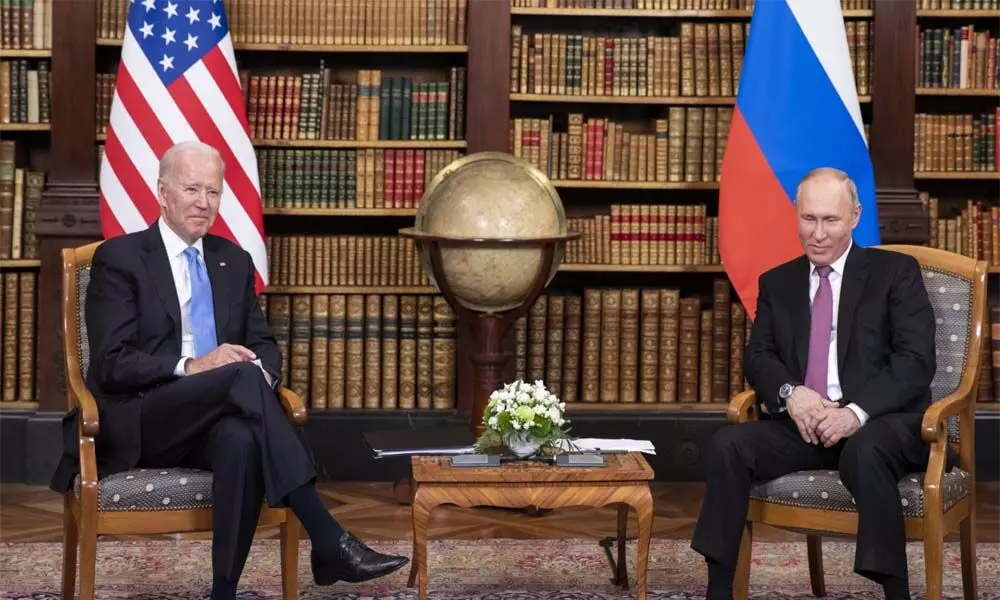Will Biden have 'skewed' view of Russia like Obama?
Russia has the world’s 11th biggest economy by nominal GDP in US dollars, according to the International Monetary Fund, but the sixth biggest if one accounts for purchasing power parity, only slightly smaller than Germany’s
image for illustrative purpose

When US President Joe Biden revives the trope of Russia as a declining power with an economy that produces little except oil and gas, Americans should hope he doesn't really believe it. That it's untrue is only half the problem; when US leaders repeat that depiction, they invite trouble, for Russian President Vladimir Putin both hates and loves to be underestimated.
On July 27, Biden said this about Putin:
When I was with Putin, who has a real problem — he is — he's sitting on top of an economy that has nuclear weapons and oil wells and nothing else. Nothing else. Their economy is — what? — the eighth smallest in the world now — largest in the world? He knows — he knows he's in real trouble, which makes him even more dangerous, in my view.
This kind of talk has plenty of history in US political circles. The late Senator John McCain liked to call Russia "a gas station masquerading as a country." Reality is strikingly different.
Russia has the world's 11th biggest economy by nominal GDP in US dollars, according to the International Monetary Fund, but the sixth biggest if one accounts for purchasing power parity, only slightly smaller than Germany's; since Russia is only the ninth most populous nation in the world, that's actually not bad.
The official Russian statistical agency, Rosstat, recently assessed the full share of oil and gas in the Russian gross domestic product, including their contributions to other sectors, and arrived at 15.2 per cent in 2020, compared with 21.1 per cent in 2018. That's about twice the sector's 8 per cent share of US GDP.
Russia is not an export superpower if one discounts oil and gas (which will likely provide reliable revenue long after the 68-year-old Putin dies), but it has a large enough domestic market to sustain one of the world's biggest and, importantly, most resilient economies. Putin's economic managers are successfully squeezing more cash out of the domestic economy and less from energy resources. Russia still depends on oil and gas for 27.9 per cent of its federal budget revenue, but this share has shrunk significantly in recent years; in 2020, combined revenues from value-added, excise and corporate income taxes exceeded, for the first time in Russian history, the hydrocarbon contributions to the budget.
In other words, Putin isn't, by any measure, "in real trouble" on account of the Russian economy, plagued by imbalances, corruption and anemic growth as it certainly is. Why supposed economic desperation would "make him more dangerous" is also unclear; true hardship actually made Soviet and Russian leaders pliable rather than aggressive in the late 1980s and until the 2000s.
So if Biden meant what he said, he's badly misinformed and drawing lazy conclusions from bad information he's absorbed. That can lead to nasty consequences.
Putin doesn't take kindly to public belittlement, as Biden's former boss Barack Obama discovered to the detriment of US interests. When Obama called Russia a "regional power," Putin made no secret of finding it "disrespectful"; soon after Obama's slight, the US was dealing with a Russian intervention in Syria that upset its Middle Eastern plans and showed that Russia could project power well beyond its immediate vicinity. (Bloomberg)

